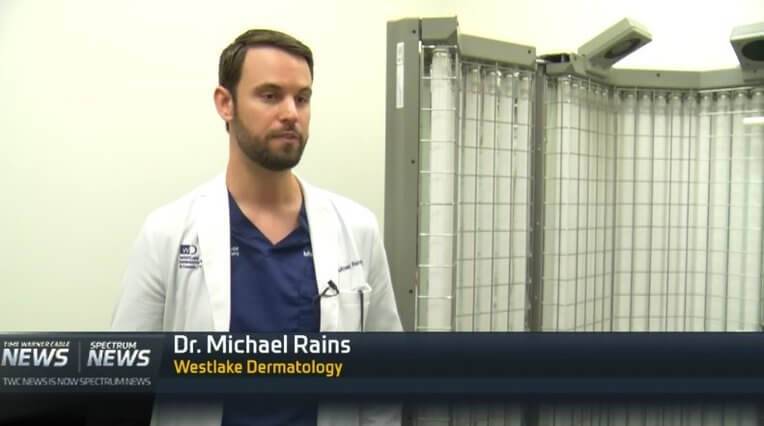

Psoriasis Treatments
Psoriasis is a chronic and often painful skin disease in which skin cells reproduce much faster than normal. This non-contagious condition causes round, reddish skin patches with silvery scales to develop on the scalp, knees, elbows, hands and feet.
A normal skin cell matures and falls off the body’s surface in 28 to 30 days. But a psoriatic skin cell takes only three to four days to mature and move to the surface. Instead of falling off, the cells pile up and form the lesions.
There are several forms of psoriasis.
- Plaque – the most common form, characterized by raised, inflamed, red lesions covered by a silvery white scale
- Guttate – characterized by small dot–like lesions
- Pustular – characterized by weeping lesions and intense scaling
- Inverse – characterized by intense inflammation
- Erythrodermic – characterized by intense shedding and redness of the skin
Dr. Rains discusses Phototherapy for psoriasis?
What treatment options are available for psoriasis?
Treatment options include topical or oral medications, biologic agents that work by blocking the activation of the cells that trigger the development of psoriasis, Phototherapy (UV Light Therapy) and the Aurora laser. Contact us today to explore the best psoriasis treatment options.
Additional Psoriasis Resources
- Health Central: The Long Road to Clearer Skin
- Plaque Psoriasis Symptoms, Prevention, and Treatment Options
- Nail Psoriasis: Symptoms, Causes, Prevention, and Treatment Options
- Managing Psoriasis with Biologic Medications
- Common Triggers that Cause Psoriasis Symptom Flare-ups
- Controlling Psoriasis with Phototherapy
- Today’s Best Psoriasis Treatment Options
- Psoriasis: Practical Tips for Minimizing Flare-ups
